Meat is a great source of protein, vitamins and minerals. Animal proteins are amino acids - building blocks for cells in bones, muscles, and hormones. And unlike plant proteins, animal protein offer the most complete protein that are most similar to our body. But it's important to buy the right type of meat and here's my guide on buying meat for your health.
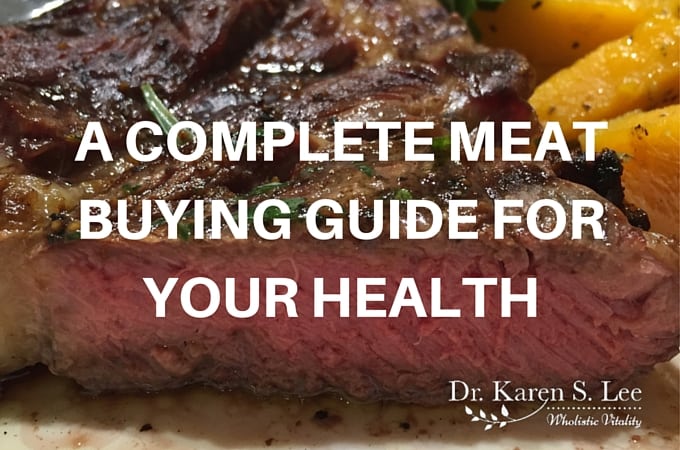
It's important to add animal proteins to our diet to provide the necessary nutrients for health. And if you worry about the planet, as I was when I was a vegetarian/vegan in the past, just know that animals provide the nutrients for the plants and plants provide food for the animals so it's a complete ecosystem at work, as Michael Pollan stated in "Cooked".
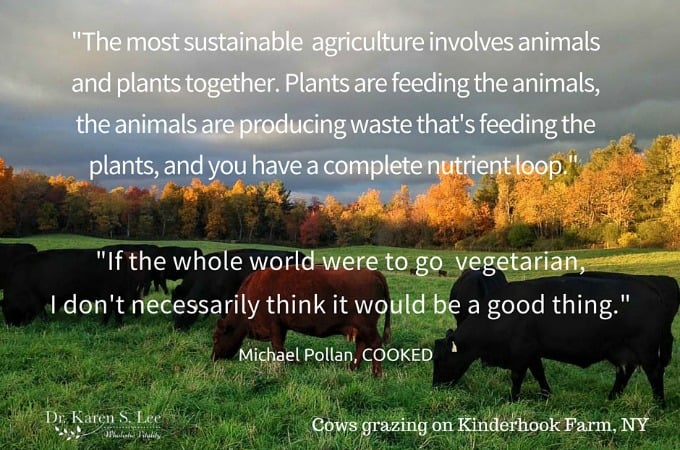
As in most things in nature, not all meats are created equal. It's important to eat meats that have been sustainably, ethically and humanely raised and slaughtered for food. And how do you know that? The labels on packages of meats should inform consumers in how the animals were raised and what the sources are. Personally, I buy my meats from local farmers that I know, like Kinderhook Farm in Hudson Valley, NY. But if I have to buy from a supermarket, I go to Whole Foods where their rating system is transparent.
Here is your helpful guide to buying the right quality meats for healthy eating.
A Complete Meat Buying Guide For Your Health
BEEF
- Buy meats that are sustainably raised and humanely slaughtered animals, without hormones, antibiotics, or any other illness preventive drugs. Meats from locally raised animals would be the best but when locally sourced meats are not available, at least look for meats that are not fed antibiotics or hormones.
- Buy meats that are raised on a diet while naturally grazing or pastured on the farm, without being caged.
- 100% grass-fed and grass-finished beef is preferable but if you cannot find it, grass-fed/grain-finished or grass-fed/hop-finished meat can be substituted. Grass fed beef is richer in Omega 3, linoleic acid, antioxidants and Vitamin E so it's much better for your heart health.
- Eat a variety of wild game meats since most likely, they will be grass fed and grass finished. In general, bison/buffalo should be 100% grass-fed since they are not raised in cages. They are more wild species so chances are, they will be grass fed 100% of their lives.
POULTRY
- Buy poultry from animals that were raised while freely roaming. These animals are natural omnivores and not vegetarians. They should not be fed strictly grain or soy diet since they are omnivores. If they are fed strictly on a vegetarian diet, the chances are, most of the feeds will be GMO and are not healthy for the animals or the consumers who eat the meat. The animals should be freely foraging for food on the farm, eating insects, worms, seeds and anything else they naturally eat.
- Technically, all poultry meats should not be given antibiotics or hormones. But if you see labels that say that, don't think that's special. By law, they shouldn't be injected with those anyway.
PORK
- Buy pastured pork from pigs that roamed on the farm, enjoying outdoors, eating a variety of foods and not grains. They should be happy pigs, literally.
WHAT DO LABELS MEAN
- “Organic” meats usually mean they were raised in a CAFO. And while they may not have been fed conventional or GMO feed, they were not raised in their most natural surroundings, as in, as in their natural pastures or in their species specific environment. Having said, if grass fed or pastured meats are not available, organic meats would be preferred over conventional meats.
- “Natural” is an unregulated and popular marketing term in the food industry. Do not rely on this label to make you think it's healthy. Even natural ingredients can be unhealthy and toxic if not used properly. All living animals are natural but it does not mean, they are safe or healthy to consume.
- “Vegetarian fed” typically means that the animal was given soy/corn/grain- almost all of which is GMO and is not a natural diet for the animals. Most animals we eat are omnivore and should not be fed vegetables or grains only. Don't let this label fool you, thinking, this is healthy.
- NO HORMONES (pork or poultry): "Hormones are not allowed in raising hogs or poultry. Therefore, the claim "no hormones added" cannot be used on the labels of pork or poultry unless it is followed by a statement that says "Federal regulations prohibit the use of hormones." ~ USDA
- NO ANTIBIOTICS (red meat and poultry): "The terms "no antibiotics added" may be used on labels for meat or poultry products if sufficient documentation is provided by the producer to the Agency demonstrating that the animals were raised without antibiotics." ~ USAD
AVOID
- Concentrated Animal Feeding Operation (CAFO) or factory raised meats. Almost ALL supermarket meats are from CAFO. They should be avoided. They have been injected with growth hormones, pumped with antibiotics. The meat lack in vitamins and minerals from being raised in unnatural environments for animals and were fed a poor diet for their natural survival.
- Cheap meats are not nutritionally dense. They are probably raised in CAFO and the chances are, they've been inhumanely slaughtered. If you have to buy meat, even a few times a month, buy quality meat that are ethically sourced as mentioned above.
- Odorous meats. Some supermarkets have been cited for selling re-packaged expired meats. Check the packaging carefully for freshness, although, you can't go by red colored meats since they could have been artificially colored to make it look fresh.
MISC
- Buy whole poultry, skin-on, bone-in, rather than boneless, skinless breasts or thighs. Or any meats, for that matter. They are cheaper and more nutritious to cook nose to tail, not to mention sustainable
- Avoid burning or charring meats for safer cooking. You don't want carcinogens that come from eating burnt meat.
- Cured meats have been found to be carcinogenic so make sure bacon, deli meats and sausages were prepared without nitrates or nitrites or "uncured". If you want more info about red meat causing cancer, eat more vegetables with your meat. Vegetables will act as detoxifier and antioxidant.
- Don't forget organ meats or offal from healthy animals for they are extremely nutrient-dense. Grass-fed beef liver is nutritionally dense. Try incorporating it into other meats like hamburger or meatloaf or meatballs.
For meat recipes, check here.
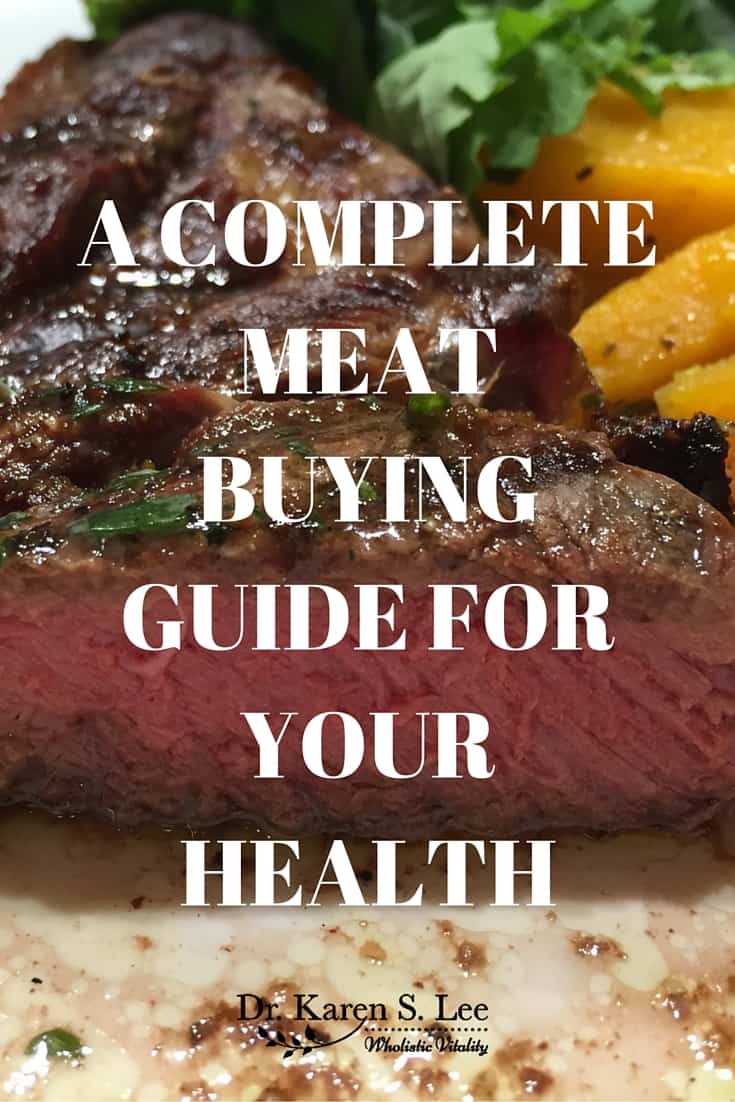


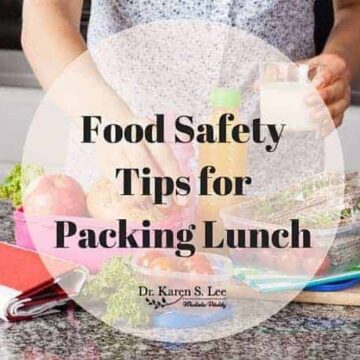
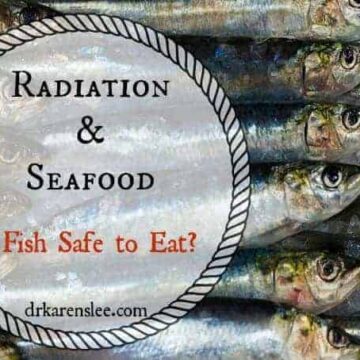
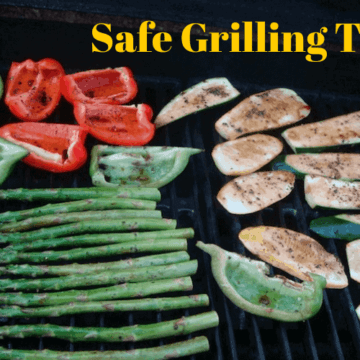
Raia T. says
Ever since doing the GAPS diet, I can't even handle meat that isn't organic, it makes me sick to my stomach. I'm so grateful that organic meat is getting more available. Thanks for sharing this at Savoring Saturdays!
Elaina Newton says
Excellent post! I also buy my meat from Whole Foods because of their rating system, when I can't get it at my local farmers market, which sells pastured pork and 100% grass-fed beef.
Dr. Karen says
Glad Whole Foods works for you too! We're lucky to live near it!
Emily @ Recipes to Nourish says
This is so helpful! Love how you covered all of the common terms - so helpful to break down what they all mean.
Dr. Karen says
Yes, terms and labels can get so confusing! Thx for reading!
Megan Stevens says
Great post, so helpful! We are grateful to have many local meat farmers with great practices in our valley, but I am thankful this quality meat can be ordered now by folks who don't live in good farm country.
Dr. Karen says
I am lucky too! And more and more grass fed beef companies are shipping now so yes, we're getting there!
lindaspiker says
Wow! Amazing post. Pinned to multiple boards!
Dr. Karen says
Thx Linda!